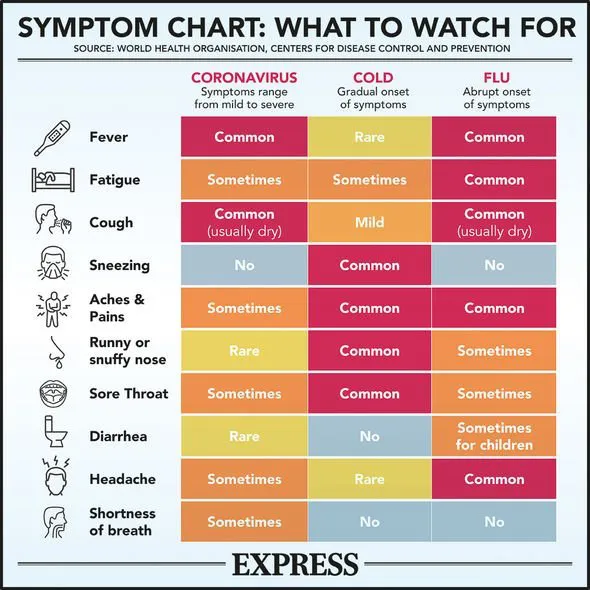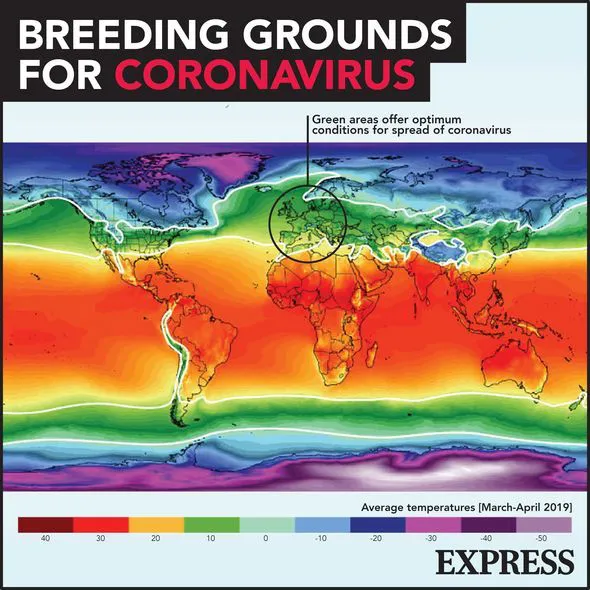Coronavirus has claimed the lives of more than 46,000 Brits and infected at least a further 308,000. The country is still in the midst of the epidemic, but Britons can't resist getting out and enjoying the rare warm weather. However, with the UK seeing a heatwave this weekend, what does this mean for the virus?
Does hot weather kill coronavirus?
Whether or not the heat affects coronavirus is still something of a debate.
Usual viruses peak in the winter months, when the cold weather and people staying in confined spaces creating the perfect breeding ground for the spread of disease.
However, as the world has already seen, COVID-19 does not usually take a break to sunbathe.
When the virus first came to prominence in February and March, warmer countries such as Iran and Australia - which was in the midst of its summer - saw rapid spreads of the virus.

WebMD said: "Every virus and pandemic is different, and there are a number of things that influence them, even in hot and humid weather.
"With COVID-19, there is simply not enough evidence to know if there will be a significant slowdown in infections as temperatures rise.
"That’s why experts recommend that you don’t assume that summer months will be safer for the transfer of COVID-19 and that you to continue to take appropriate steps to protect yourself and those around you."
The World Health Organization has also warned that scorching heat will not halt the spread of COVID-19.

Coronavirus symptoms
The health agency said: “You can catch COVID-19, no matter how sunny or hot the weather is. Countries with hot weather have reported cases of COVID-19.
“To protect yourself, make sure you clean your hands frequently and thoroughly and avoid touching your eyes, mouth and nose.”
However, some scientists believe they will not know the true extent of how heat affects coronavirus until the seasons have come and go.
As COVID-19 is still relatively new, scientists concede there is simply not enough data to make an accurate prediction.
The Centers for Disease Control and Prevention said: “We don’t have direct data for this virus, nor do we have direct data for a temperature-based cutoff for inactivation at this point.
“The necessary temperature would also be based on the materials of the surface, the environment, etc.”
Put simply, do not bank on the current heatwave in the UK to stop the spread.WebMD said: "Every virus and pandemic is different, and there are a number of things that influence them, even in hot and humid weather.
"With COVID-19, there is simply not enough evidence to know if there will be a significant slowdown in infections as temperatures rise.
"That’s why experts recommend that you don’t assume that summer months will be safer for the transfer of COVID-19 and that you to continue to take appropriate steps to protect yourself and those around you."
The World Health Organization has also warned that scorching heat will not halt the spread of COVID-19.

Coronavirus symptoms
The health agency said: “You can catch COVID-19, no matter how sunny or hot the weather is. Countries with hot weather have reported cases of COVID-19.
“To protect yourself, make sure you clean your hands frequently and thoroughly and avoid touching your eyes, mouth and nose.”
However, some scientists believe they will not know the true extent of how heat affects coronavirus until the seasons have come and go.
As COVID-19 is still relatively new, scientists concede there is simply not enough data to make an accurate prediction.

Coronavirus breeding ground
The Centers for Disease Control and Prevention said: “We don’t have direct data for this virus, nor do we have direct data for a temperature-based cutoff for inactivation at this point.
“The necessary temperature would also be based on the materials of the surface, the environment, etc.”
Put simply, do not bank on the current heatwave in the UK to stop the spread.







 Teemikemedia
Teemikemedia














0 Comments
Advertise your business here at cheap rate and get large audience to your market. Call/Msg Teemikemedia: 07060733664 to get started.